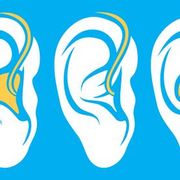Answers to 5 Frequently Asked Questions about Tinnitus

Tinnitus is a ringing or buzzing in one or both ears that is not caused by an external sound. For some, the symptoms are mild and go away on their own. Others experience severe discomfort that disrupts their daily lives and leads to other health problems. Keep reading to learn more about this common condition and how an audiologist could help.
A Brief Guide to Tinnitius
What are the causes?
Tinnitus is not a disease, but rather a symptom of other underlying conditions. The most common causes include age-related hearing loss or exposure to loud noises, which can damage cells in the inner ear, called cilia. But other factors, such as a build up of excess ear wax, can contribute to the onset of tinnitus.
It can also be a symptom of certain medical conditions, like hypothyroidism and Lyme disease, or a side effect of some medications. Tinnitus has also been linked to mental health issues, such as anxiety and stress. By determining the underlying cause of your tinnitus, an audiologist can recommend the most effective treatment.
What are the symptoms?
Most patients describe hearing a ringing sound similar to an old-fashioned telephone. But some experience other sounds like buzzing, humming, clicking, or hissing. It can occur in one or both ears, it can be intermittent or constant.
The noise can be low, or it can be so loud that it is difficult to concentrate or hear external sounds. In most instances, only the patient can hear the sound, but in very rare cases of pulsatile tinnitus, a doctor may hear a rhythmic wooshing during an examination.
Will it go away on its own?

Depending on the underlying cause of the tinnitus, it may go away after a couple of weeks. However, if the symptoms are severe enough to negatively affect your quality of life, or they do not ease after 10 days, you should consult an audiologist.
Can it get worse?
If the underlying cause of tinnitus is left untreated, the symptoms can become more frequent and severe. Over time, tinnitus can lead to other health issues, such as impaired concentration, difficulty communicating, sleeping problems, chronic fatigue, anxiety, and depression.
What treatments are available?
An audiologist can recommend effective treatment based on the underlying cause of your tinnitus. In some cases, simply removing excess ear wax can bring relief. Sometimes, stopping, adjusting, or changing certain medications can reduce their side effects.
Hearing aids can improve symptoms of age-related or noise-induced tinnitus. White noise machines have proven effective in helping patients sleep better, while counseling options such as cognitive behavioral therapy can help ease anxiety or depression linked to tinnitus.
Offering personalized service in a welcoming and comfortable environment, the licensed audiologist at Northwest Alabama Hearing Clinic in Hamilton, AL will diagnose your hearing issues using the most advanced technology. With a wide range of hearing aids and devices, this practice develops treatments uniquely tailored to each individual's needs. Call today at (205) 952-9944 or visit the website for more information.
About the Business
Have a question? Ask the experts!
Send your question

